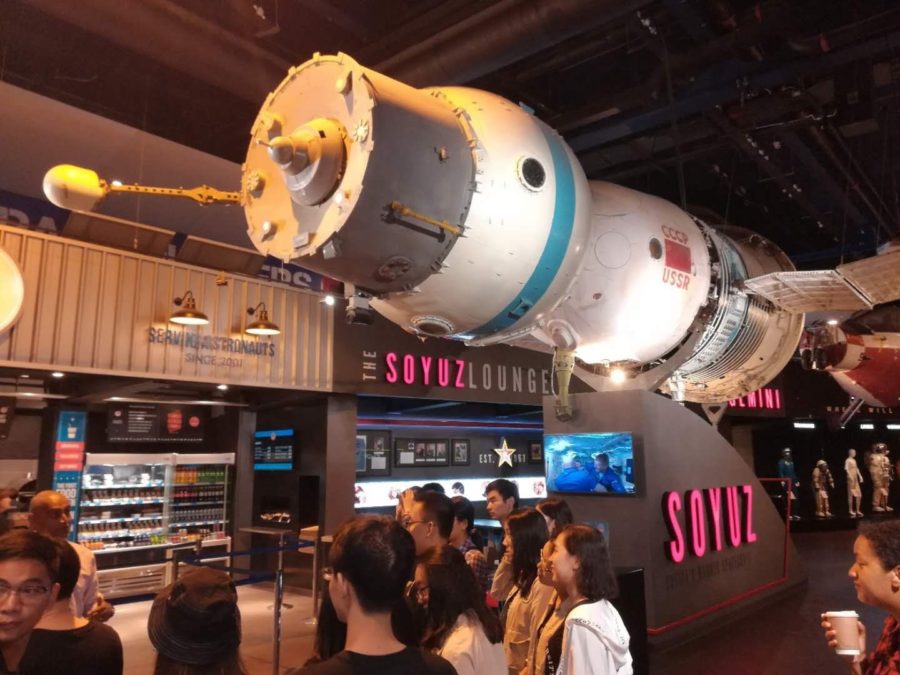Some of you may have read in the press earlier this year that a scientific algorithm suggested that Hebden Bridge in West Yorkshire is one of the 7 best places to live in the world. Subjective as that result may be it is also worth noting that Hebden Bridge is pretty much located in the middle of the UK, or to define it more sweetly; in the heart of our country. So for the purpose of this blog Hebden Bridge is a metaphor for a country which has scientific excellence to the north, south, east and west of its centre, with some of the best science facilities and research Universities in the world. In early August I had the pleasure of seeing some them and how they were engaging with China.
I started my trip at the University of Leicester which was hosting a summer school for engineering undergraduates from Beihang University in Beijing. The students were being given a two week training course in space science, in cooperation with the National Space Academy. Space is a big deal at Leicester and the University has one of the largest space research centres in Europe. It is also home to the National Centre for Earth Observation in the UK. The coming years will see the growth of a space cluster in the city bringing investment from industry and academia, and so boosting research excellence in technology, science and jobs.
My next port of call was the University of Nottingham and their Sutton Bonington Campus. Nottingham have six research Beacons of Excellence which they are using to increase and deepen international research and innovation collaborations, including with China where they have a campus in Ningbo. With their future food beacon they aim to help with the challenges of climate change and a growing global population through research in sustainable and nutritious food. I witnessed an autonomous quad copter drone scanning a 28 acre potato field looking at crop health and growth using a hyperspectral camera. It is novel technology for the modern farmer who can check his/her crops quickly for signs of blight and general crop health, and allow for corrective intervention when necessary.
I then had the pleasure of witnessing the development of 5G technology at the 5G Innovation Centre (5GIC) at the University of Surrey. Some of us may think that 5G is just the next generation of mobile communications or ‘better internet’ but the 5GIC is involved in the development of all the major components that will comprise 5G (such as future internet, machine 2 machine communications, the Internet of Things, automated and connected vehicles, satellite communications etc.) And in the 5GIC we have one of the world’s leading research organisations dealing with this very broad communication and automation technology.
After engaging with the Royal Society of Edinburgh and the impressive Data Lab Innovation Centre at the University of Edinburgh, I finished my trip at the James Hutton Institute (JHI) in Dundee. The JHI Centre in Invergowrie is a leading global research centre in soft fruits, potatoes and barley (their Aberdeen Centre also deals with the sustainable management of land and natural resources). A partnership that we are assisting with is the development of a joint potato centre between the UK and China, where the JHI is an important stakeholder. I witnessed the Commonwealth Potato Collection which has over 1500 different lines (or accessions) of potato and 80 different species which trace back to plants in South and Central America. This facility forms an important gene bank for the cultivation of new potato crops resistant to disease and drought. I also witnessed new technology with indoor vertical farming, which could allow for food cultivation anywhere on the planet where there is a reliable energy source.
This 5 city journey in 5 days captured only a minute fraction of the UK science landscape, and in very specific sectors. The Science & Innovation Network (SIN) in China is here to promote UK science and to help develop science & innovation partnerships. If you are part of the UK science community and unsure how the SIN network can support you in China please do get in touch, more details available here.

